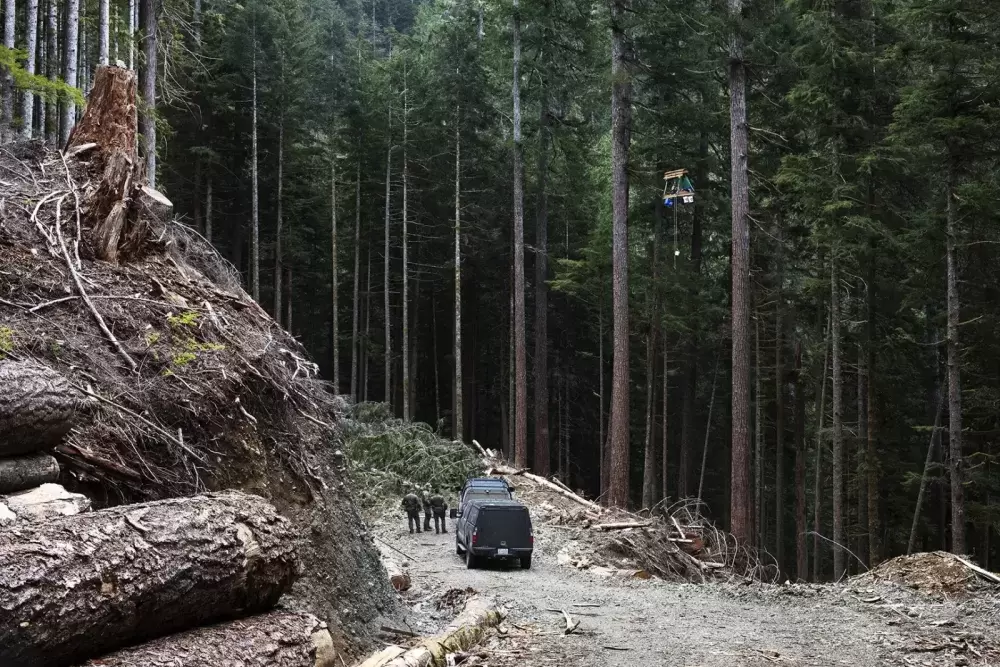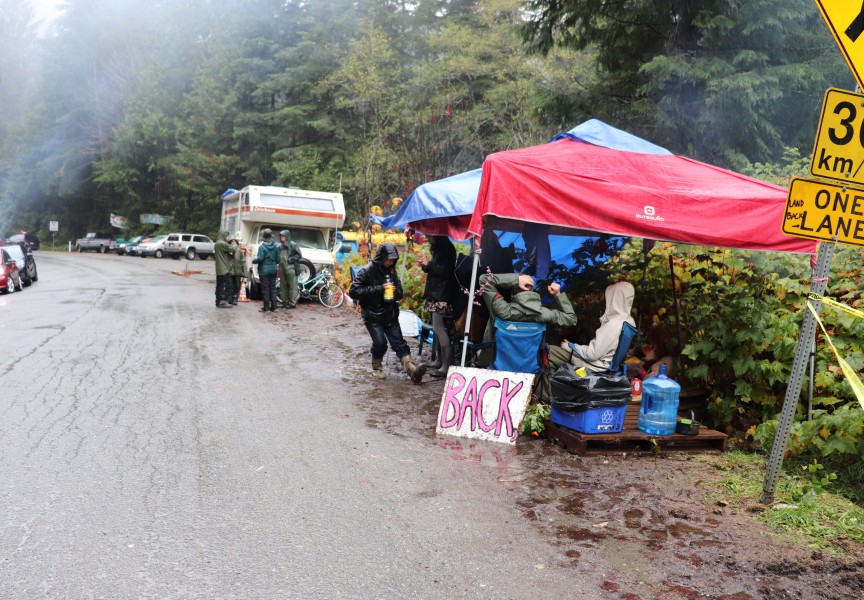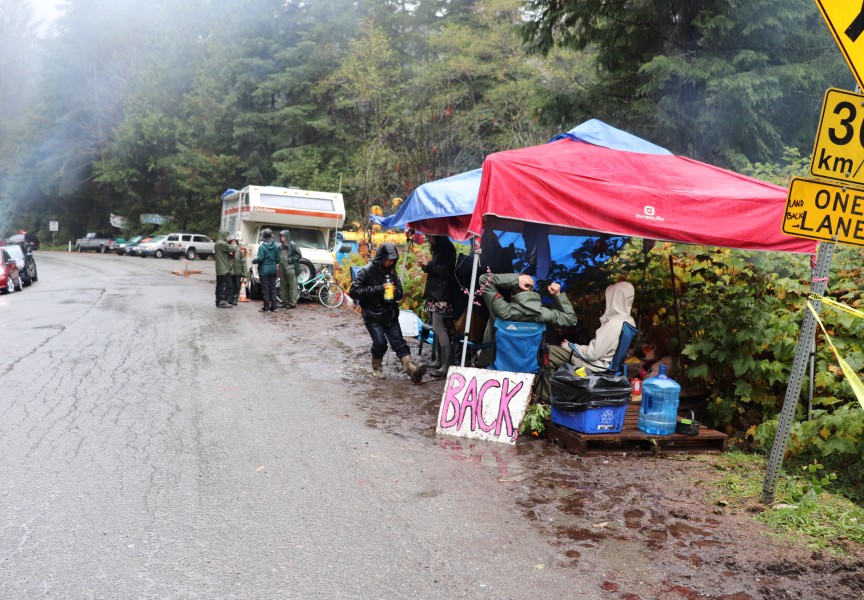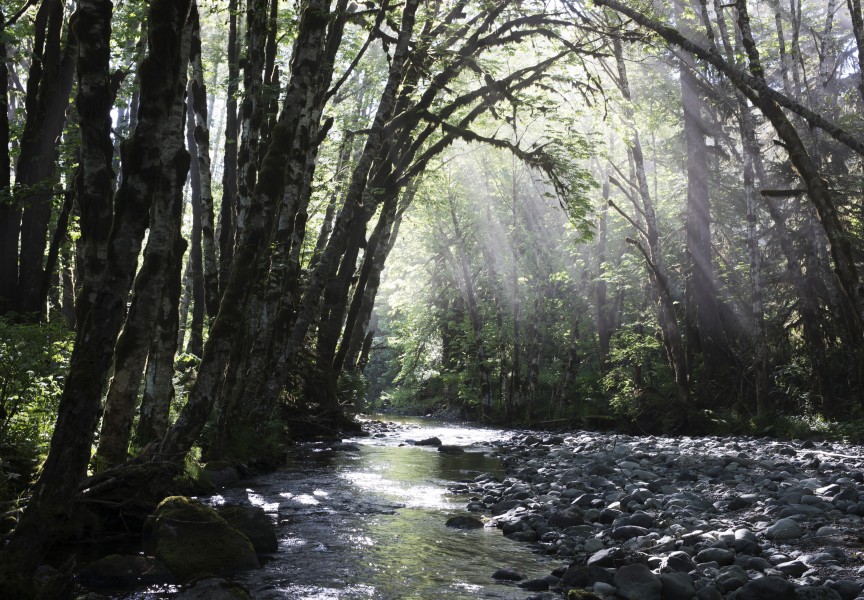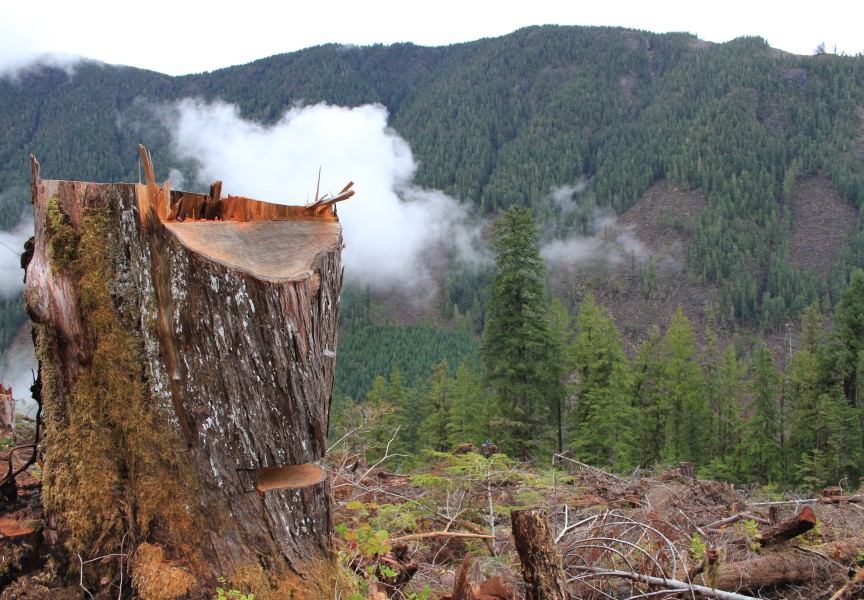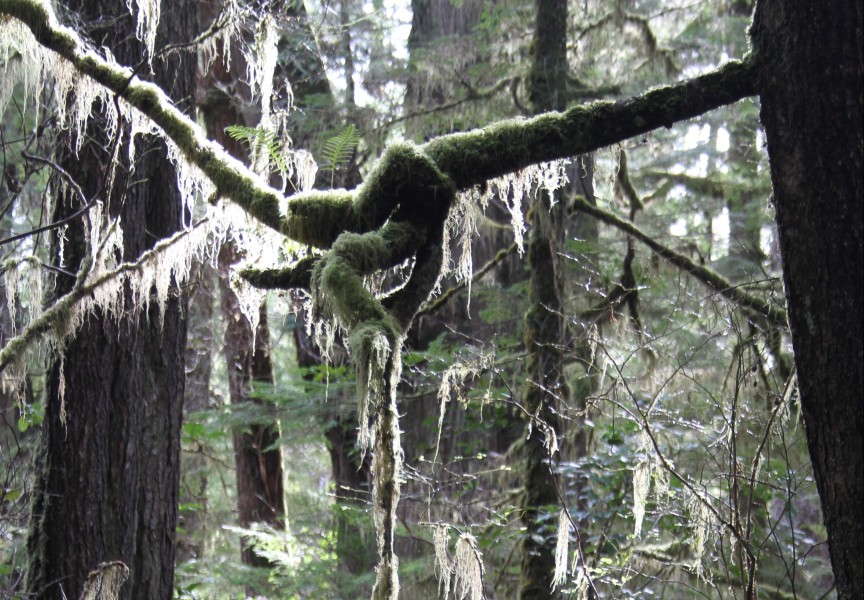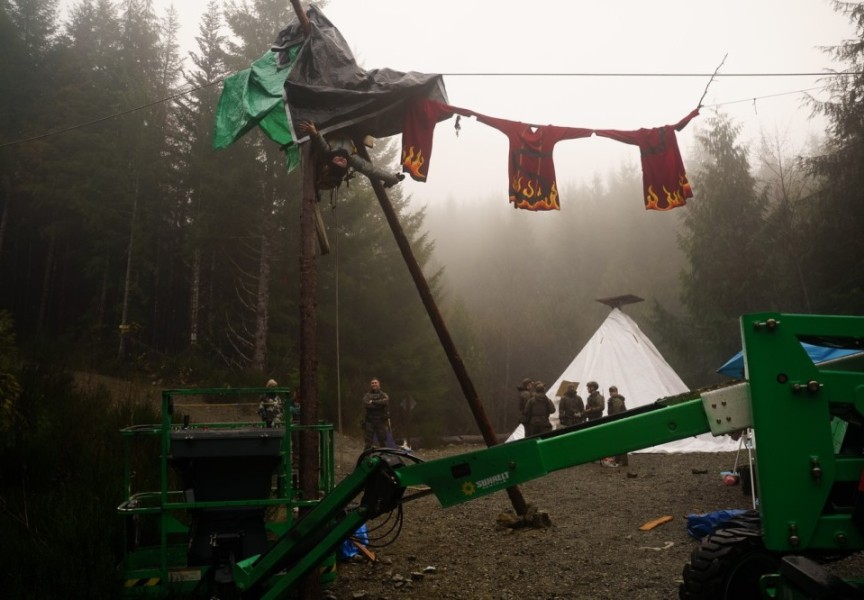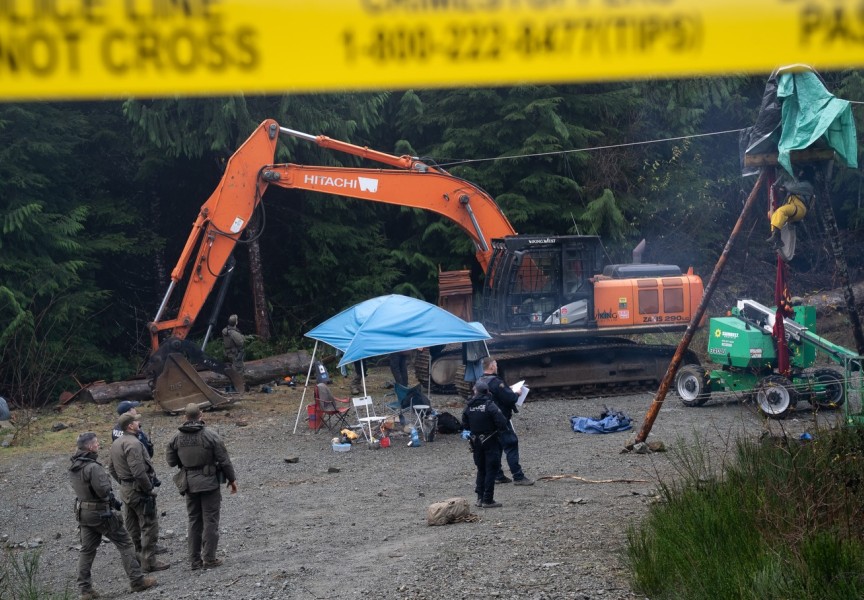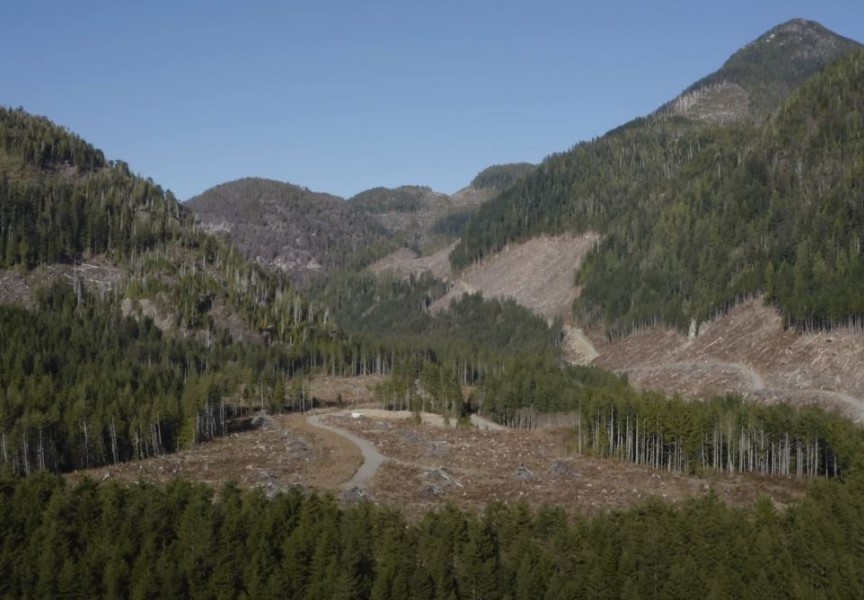Days after the B.C. Supreme Court denied a request to continue an injunction against protestors interfering with forestry activities near Port Renfrew, another judge has heeded the concerns of Teal Cedar Products, granting a temporary extension to police enforcement.
On Friday, Oct. 8 the B.C. Court of Appeal heard the application from Teal Cedar Products, which holds tenure over Tree Farm Licence 46, a nearly 60,000-hectare section of Crown land that spans forest in the territories of the Pacheedaht and Ditidaht First Nations. Justice Sunni Stromberg-Stein agreed to extend the court order for another month, which bars people from interfering with road building and logging operations in the area.
Teal Cedar’s legal counsel told the court that not having the injunction in place poses irreparable harm to the company’s business interests. Access to the area is urgently needed to prepare the roads for the winter to prevent washouts, explained Teal Cedar Products’ lawyer Dean Dalke, while an estimated $1.27 million worth of felled timber lies on the forest floor awaiting transportation before the elements degrade its value. Harvesting additional timber before the winter is also needed to keep mills running and prevent job losses, argued the lawyer.
The court injunction was in place from April 1 to Sept. 26, resulting in over 1,100 arrests as thousands flocked to the remote area to protest old growth logging. Under the coordination of the Rainforest Flying Squad, blockades have been in place since August 2020 to prevent logging in the Fairy Creek watershed, considered one of Vancouver Island’s last valleys untouched by industrial forestry.
In late June the region’s First Nations stepped forward to assert authority over their territorial resources, when the Pacheedaht, Ditidaht and Huu-ay-aht First Nations signed the Hišuk ma c̕awak Declaration. This document was accompanied with a notice to the provincial government to grant a two-year deferral of all old growth logging in the Fairy Creek and Central Walbran areas while the First Nations undertake their own forest stewardship plans. The province quickly complied with this request, but protestors have continued to have a strong presence in the area out of concern that many other sections of old growth remain unprotected. The Pacheedaht First Nation has repeatedly asked protestors to leave their territory, but to no avail.
In late September Justice Douglas Thompson ruled against the 12-month extension Teal Cedar requested, citing threats to civil liberties and freedom of the press during police enforcement of the court order.
“I considered the infringements of civil liberties to be unjustified, substantial and serious,” wrote the judge in his decision. “It goes without saying that unlawful measures imposed by those given authority to enforce the court’s order does no credit to the rule of law or the court’s reputation, especially when those measures trench on civil liberties in a substantial way.”
Now another court decision on the conflict is expected Nov. 15, when the B.C. Court of Appeal is set to weigh the economic value of extending the injunction on a more permanent basis against the public concern of preserving more of the island’s oldest trees to mitigate the effects of global warming.

